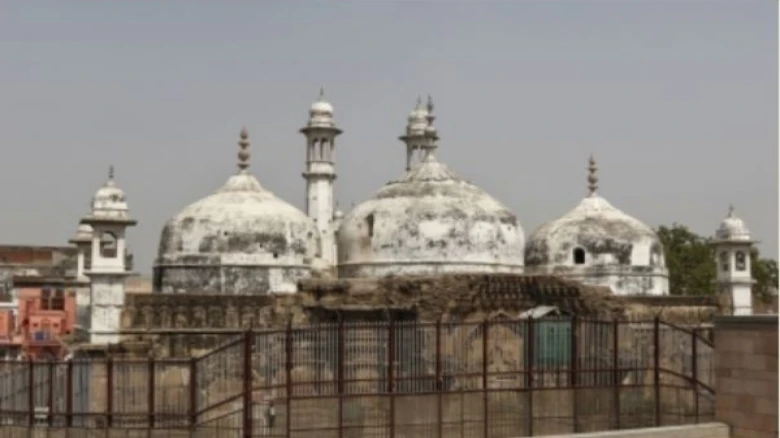The petition filed by the women, which sparked a survey inside the mosque, will continue to be heard by the court, according to district judge AK Vishvesha.
Digital Desk: The Court on Thursday approved to hear the petition of five Hindu women who want to pray at a shrine within the Gyanvapi mosque in Varanasi, near the famous Kashi Viswanath temple. Their petition will be heard on September 22nd.
The court dismissed the Anjuman Intezamia Committee's petition to challenge the Hindu worshippers' request, ruling that the case is valid. The Muslim side's committee will now appeal to the Allahabad High Court, appealing the lower court's decision.
On Monday morning, Varanasi resembled a fortress as prohibitory orders were imposed and security was strengthened in the temple town. The petition was submitted by five ladies seeking permission to worship Hindu deities whose idols are alleged to be located on an outer wall of the Gyanvapi mosque. The committee stated that the Gyanvapi mosque is a Waqf property and questioned the petition's viability.
A lower court had earlier mandated that the facility be recorded. The report was delivered in court on May 19 after the survey work was finished on May 16. The Muslim side refuted the Hindu side's assertion made in the lower court that a Shivling had been discovered during the videography inspection of the Gyanvapi mosque-Shringar Gauri complex.
Here are some key facts from the Gyanvapi case:
1| It is a significant step forward for the five women, who want to hold year-round puja and ceremonies in a section of the mosque compound. They claim there are Hindu gods and goddesses idols in the site.
2| Muslim petitioners, primarily mosque managers, want the petition dismissed and say they are prepared to battle all the way to the Supreme Court.
3| Their challenge was denied on all three of the grounds they raised. The most notable of these is a 1991 regulation that freezes a house of worship's status as it existed on August 15, 1947. The petitioners do not seek ownership, only the freedom to worship, according to the court.
4| Based on the women's petition, a lower court authorised the recording of the centuries-old mosque earlier this year.
5| The Hindu petitioners' leaked videography report claimed a "Shivling" or relic of Lord Shiva had been discovered in a pond within the mosque compound used for "Wazoo" or purifying procedures before Muslim prayers.
6| A court then isolated the area and prohibited huge namaz gatherings at the prominent mosque. According to the court, the gatherings should be limited to 20 individuals.
7| The Gyanvapi mosque committee contested the recording within the mosque in the Supreme Court, claiming that it violated a 1991 statute (Places of Worship Act).
8| According to the Muslim petitioners, "such petitions and shutting of mosques will lead to public mischief and social strife, affecting mosques across the country."
9| The case was handed to the city's most senior judge in May, citing the "complexity and sensitivity" of the issue, which it claimed required professional handling.
10| The Gyanvapi mosque, located in Prime Minister Narendra Modi's constituency (Varanasi), is one of several mosques that Hindu hardliners say were built on temple ruins. It was one of three temple-mosque rows created by the BJP in the 1980s and 1990s, along with Ayodhya and Mathura, that gained national prominence.

Leave A Comment